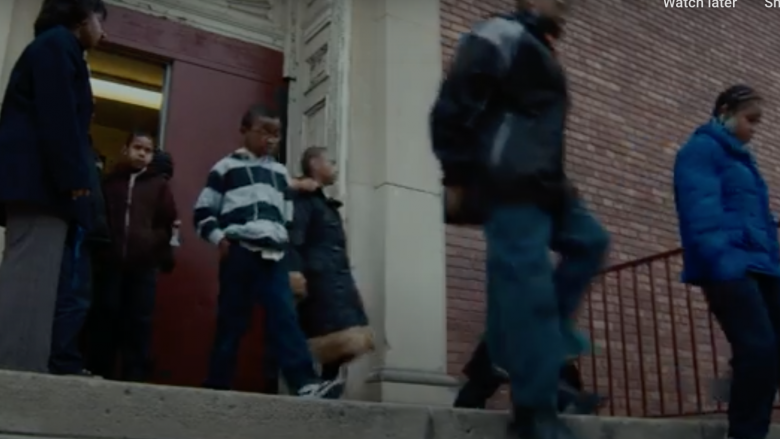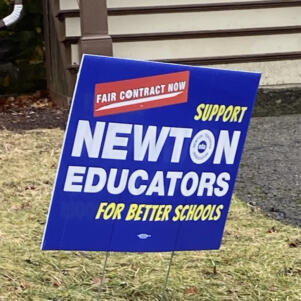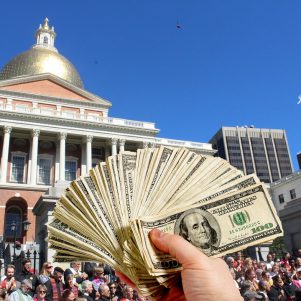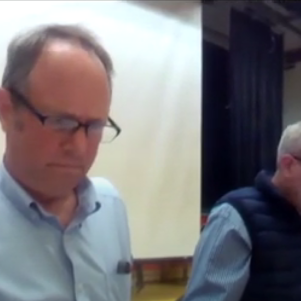Instead of De-Funding The Police … Why Don’t We Fund Parents?
By Kevin Thomas | June 22, 2020, 13:04 EDT
 Waiting for ‘Superman’, a 2010 documentary, depicts urban kids trying to escape their failing public schools. The movie was produced by Walden Media.
Waiting for ‘Superman’, a 2010 documentary, depicts urban kids trying to escape their failing public schools. The movie was produced by Walden Media. So now, “defund the police” is trending. Take money from the cops and give it to …
Watch the scramble for the dough, as progressive leaders blather on about their need for funds.
One obvious “need,” apparently, is increased school funding.
U.S. Representative Alexandria Ocasio-Cortez (D-New York) wants “the reduction of our NYPD budget and defunding a $6-billion budget, that cost us books in the hands of our children …”
Such drama: our illiterate kids can’t read because of those bad cops.
If only we could put more money into schools. …
Oh wait, we have.
Using data from the Organisation for Economic Cooperation and Development, Insider.com ranked the top 15 countries in public education spending at the elementary and secondary levels in 2015. The United States is number two at $12,800 per student. (Norway, at $15,000, was first.)
And what do Americans get for their hearty investment? According to Pew Research numbers we’ve quoted before, the United States ranked 38th in math skills, and 24th in science. According to the Organisation for Economic Cooperation and Development, the United States was 18th in reading. Money is not fixing public education. We have teacher unions pushing ideology instead of teaching. Pleas for reform are continual, but there are growing calls to abandon public schools.
Another reform is not going to fix education in our country. And robbing the police budget isn’t going to, either.
Two words will go a long ways toward a fix: school choice.
But those are fighting words for many educational “experts,” including the teacher unions, who do not want to lose control. Their argument is that school choice will harm public schools, while helping fund rich private schools. But such demagoguery only distracts from the problem. What we are doing in this nation is not working – remember the rankings: 38th, 24th, 18th.
Those who suffer are the ones who can’t make the choice – those stuck in a lousy school zone, without the financial means to go private, or the luck to get into a charter school. The poor suffer the most. This is especially concerning among some minorities, where large percentages live in poverty (24 percent of Native Americans, 22 percent of blacks, and 19 percent of Hispanics).
In a recent New Boston Post article, Tom Joyce lists “Five Conservative Policies That Would Help Blacks,” topped by school choice. But choice means less influence for the teacher unions, so they oppose them, even when the choice is for a public charter school. Teacher unions heavily back Democratic politicians, so it is not surprising, as Joyce points out, that Joe Biden vows he will do away with charter schools if president.
Who is Biden trying to help – teacher unions or schoolchildren? According to a Forbes article that relies on data from the Center for Research on Educational Outcomes:
“The charter formula – autonomy, accountability, diversity of learning models, choice and operation by nonprofits – is transforming urban education. In states with strong charter laws and equally strong authorizers, charter schools have produced impressive students gains, especially in schools with high-minority, high-poverty populations.”
Because charter schools are public, enrollment is open – but there are limited spaces. As the Forbes article points out, “if too many students apply, they hold lotteries to see who gets in.”
Lotteries? If poor parents want a better school for their children, it’s based on luck. Watch the 2010 documentary Waiting for Superman (here is the trailer) about the horrors of inner-city public schools, and the only hope is being selected in a lottery.
There has to be a better way.
Here is one politician’s take on wanting to help “millions of low-income Hispanic and African-American children who deserve the same chance as every other child in America to live out their dreams and fill up their hearts and be educated at the top, top level.” That sounds marvelous but, because it came from Donald Trump, in his advocating of school choice, it did not receive much attention.
The past two Democratic presidents, Bill Clinton and Barack Obama, both opposed school choice programs, while they sent their children to private schools. They claimed to want all children to have a quality education, no matter their zip code, but their actions spoke louder.
Why not provide a voucher, allowing citizens to direct their taxpayer money to the school of their choice? Such a voucher could cover all or most of the school’s tuition. When people think of private, they think expensive. But many private schools are more fiscally conservative than public ones? According to the United States Conference on Catholic Bishops, the average cost per pupil at a Catholic school is $5,847 (less than half of public schools), while overall academic achievement is higher – including Hispanic and African-American students in Catholic schools, who are more likely to graduate from high school and college. (Transparency note: I teach in a Catholic school.)
Of course, mention the words voucher and Catholic schools in the same sentence, and listen to the American Civil Liberties Union scream about separation of church and state. But the state is not establishing a religion. Vouchers go to the parents who choose the school.
One case currently before the U.S. Supreme Court features the argument over using state money in Montana to benefit a family choosing a religious school. Predictably, teacher unions are against it. Randi Weingarten, president of the American Federation of Teachers, asked, “What about funding the almost 90 percent of parents who choose to send their kids to public schools?” Weingarten said expanding school choice and charter programs could “decimate public education.”
But how many of those parents who “choose” public schools have no other choice? Public education already seems to be decimated enough for many.
In an article in The Atlantic, Michael Godsey writes about the “general culture of public schools” where too many students are not engaged in learning. Godsey teaches in such a school, but is sending his daughter to a private school: “For my family, we choose to emphasize a specific learning environment.”
Parents want their children to learn. If the United States is serious about education – and equality – it will offer its citizens a choice of schools.
Kevin Thomas is a writer and teacher, living with his wife and children in Standish, Maine.











